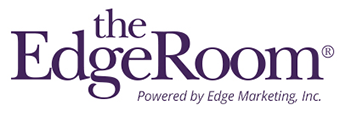Corporate public relations is a critical and ever-evolving function, but its foundation remains focused on creating and maintaining a favorable image for your organization. While that effort includes several areas of discipline, communications and media relations are among the most important. The rise of social media and digital technology that advances one-to-one contact via data-driven ad targeting, email campaigns and other direct marketing channels has left some companies forgetting how important and valuable more traditional mass communication is for getting their message out.
In the current political climate, the phrase “fake news” is often applied to unflattering coverage and those who produce or share it. But in fact, journalists take a great deal of pride in fact-checking and certifying the credibility of their sources before publishing anything. Their reputations are among their most valuable assets because they need credibility in order to be trusted by sources in the future. Most journalists do not have a lot of incentive to manufacture news they cannot stand behind.
Those who are trusted to deliver news and information with integrity are important partners in your corporate public relations strategy. Earned media coverage is valuable to organizations seeking to expand brand awareness or change public perception. In professional services markets like legal and accounting, we rely on the media to share information about relevant news and events and to educate the audiences about the latest industry technology, innovations and trends.
When an objective third party covers your news, cites company leaders or specialists as sources or subject matter experts or publishes content authored by those experts, it adds a level of legitimacy to the message beyond what is typically achieved through self-promotion. The media can be a great friend, so it’s important to know how to make the most of the opportunities offered through this communication channel.
Here are some tips to increase earned media coverage:
- Do research before outreach. Know your media targets, their publications or platforms, their audience(s) and the type of content and topics in which they’re interested.
- Be respectful of the media. Their time is valuable, so don’t overshare or inundate them with information that isn’t of interest to their audiences.
- Share relevant news. This includes mergers or acquisitions, company updates such as financial reports, expansions, product and service introductions or upgrades, significant milestones, key new hires and other news and events of consequence.
- Keep earned media educational, informative and objective. Save the sales pitches for marketing materials, advertising and other paid media coverage.
Take of advantage of any invitation to be interviewed by editors or reporters, whether for them to learn more about recent news, to serve as a resource for a story they’re working on or perhaps to perform a product demonstration. These are great opportunities for your organization, but there are some additional things to remember:
- Always confirm meeting logistics including dates, times and places to ensure you don’t keep them waiting.
- Make sure all technology and connectivity are in proper working order so there are no delays during a demo or a bad phone connection. If either party indicates difficulty hearing during a call, offer to dial in again to improve the connection and limit the possibility of any misunderstanding.
- Prepare, prepare, prepare. Know your key talking points and have a polite and professional response ready for any questions that cannot be answered for any reason.
Most importantly, know that you are always on the record! When talking to the media, whether in person or by phone, email or another channel, unless otherwise indicated everything shared is assumed to be on the record. So do not overshare or say anything you or your boss wouldn’t want published and attributed to you!
When in doubt, consider enlisting the help of a qualified public relations firm. In addition to having expertise in communications and messaging, PR professionals will leverage their media relationships and work on your behalf to secure coverage that will expand your brand and create the market perception you seek.




